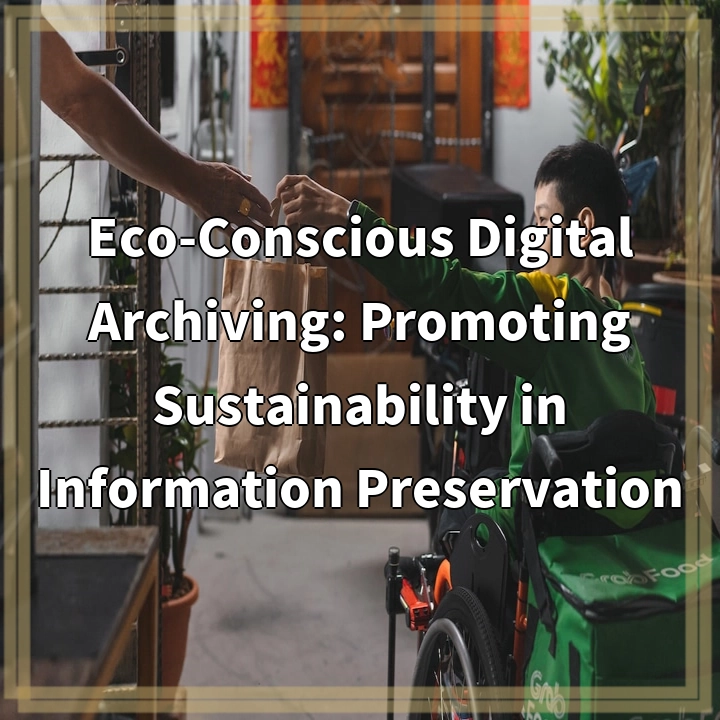
What is Eco-Conscious Digital Archiving?
Eco-conscious digital archiving is a modern approach to information preservation that prioritizes sustainability and environmental responsibility. It involves implementing strategies and practices that minimize the carbon footprint and negative environmental impacts associated with the storage and management of digital data.
Real-World Problems
In today’s digital age, the proliferation of information and the increasing reliance on digital platforms have led to significant environmental challenges. Here are some real-world problems associated with traditional digital archiving methods:
1. Energy Consumption
Digital archiving requires vast amounts of energy to power servers, data centers, and other related infrastructure. The energy demand for storing and processing data is continuously growing, contributing to high levels of carbon emissions and depleting natural resources.
2. E-Waste Generation
The rapid pace of technological advancements leads to the obsolescence of storage devices and equipment in the digital archiving industry. Outdated devices are often discarded, resulting in electronic waste (e-waste) that poses significant environmental and health hazards.
3. Data Center Footprint
Traditional data centers require extensive physical infrastructure, including large buildings, cooling systems, and backup power generators. These facilities consume significant amounts of space, resources, and water, putting a strain on the environment and local ecosystems.
4. Carbon Footprint
The carbon footprint of digital archiving is substantial due to the energy-intensive processes involved in data storage, transfer, and retrieval. This carbon footprint contributes to climate change and exacerbates environmental degradation.
5. Data Security
Ensuring the security and integrity of archived information can be challenging in traditional digital archiving systems. Vulnerabilities and breaches can lead to data loss, leading to increased energy consumption and wasteful data recovery processes.

Solutions for Eco-Conscious Digital Archiving
To address the environmental challenges associated with digital archiving, several solutions can be implemented. Here are some effective strategies for promoting sustainability in information preservation:
1. Energy-Efficient Infrastructure
Investing in energy-efficient servers, data centers, and cooling systems can significantly reduce energy consumption. Implementing virtualization and consolidation techniques can optimize resource utilization and minimize overall energy requirements.
2. Renewable Energy Sources
Shifting towards renewable energy sources, such as solar or wind power, for powering data centers can help reduce reliance on fossil fuels and diminish carbon emissions. Partnering with green energy providers or establishing on-site renewable energy systems can contribute to a greener digital archiving ecosystem.
3. Recycling and Proper Disposal
Implementing recycling programs for outdated or damaged storage devices can mitigate the environmental impact of e-waste. Proper disposal methods, such as electronic waste recycling or donating functional equipment, can help minimize the negative consequences of digital archiving on the environment.
4. Cloud-Based Storage
Leveraging cloud-based storage solutions instead of traditional data centers can offer scalability and flexibility while reducing the physical infrastructure footprint. Cloud providers often have more energy-efficient data centers and can distribute workloads to optimize energy consumption.
5. Data Compression and Deduplication
Implementing data compression and deduplication techniques can reduce the storage space required for archiving, leading to lower energy consumption and decreased infrastructure needs. This improved data efficiency can contribute to a more sustainable digital archiving process.
6. Enhanced Data Security Measures
Implementing robust cybersecurity measures can help safeguard against data breaches and reduce the need for energy-intensive data recovery processes. By prioritizing data security, organizations can avoid potential data losses and minimize the environmental impact of data restoration efforts.















